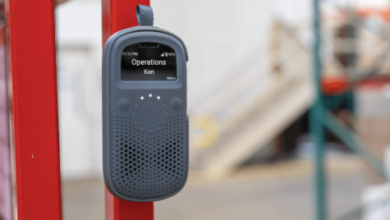Exploring the Wild? Don’t Forget Your Solar Generator for Camping

Imagine camping on a clear nighttime, with stars shining brightly within the pitch-black sky. You are by a campfire in Valley of Fire State Park or Yosemite National Park, your tent on your right, a portable solar panel set up on your left, and a solar generator for camping. Yes, you heard right, being in touch with nature is great, but a power source for your camping equipment and mobile devices is at the top of every camper’s travel list.
For those with camping experience, lighting the inside and surroundings of the tent increases camping comfort. An electric stove or barbecue allows you to heat your meals without lighting a fire, thus eliminating the risk of fire. A heater for cold nights keeps you comfortable in your tent at night. We can extend this list depending on the location where you set up camp, the duration of the camp, and your personal needs. We should also not forget the mobile devices that need to be charged, phones, cameras, tablets, drones, etc. In short, a camping power station is important for campers without compromising comfort and safety.
To avoid polluting the natural environment, we go into camp without making noise and disturbing the harmony of nature. A solar generator for camping is the right choice. Unlike old-style fossil generators, this power source, which is clean, quiet, and eco-friendly, is ideal for camping that lasts days or even weeks by being charged with solar panels.
Top Power Needs During a Camping Trip
When camping, one decisive factor is how you cover your power needs. It means you have a solar generator for camping, but you also check what device you need to use and calculate how much energy you need per day. Here’s an overview of standard camping equipment and their average power usage:
| Average Running Times Based on Typical Power Usage While Camping | ||
| Equipment | Average Power Consumption (Watts) | Average Running Time (Hours) |
| Smartphones | 5-10 Watts | 1-2 hours to full charge |
| Laptops | 50-100 Watts | 3-5 hours |
| LED Camping Lights | 5-10 Watts | 10-20 hours |
| Portable Mini-Fridges | 50-100 Watts | 8-10 hours |
| Drones and Cameras | 10-50 Watts | 1-3 hours to full charge |
| Coffee Makers | 600-1200 Watts | 5-15 minutes per brew |
| Portable Fans | 5-30 Watts | 10-15 hours |
| Electric Grills | 800-1500 Watts | 1-2 hours |
Camping equipment is suitable for most campers. To ensure you have enough energy, calculate the total power needed for the trip. For example, suppose you use a small portable mini fridge (100 watts) for 5 hours. In that case, you will need 500 watts per hour to collect the requirements for all your units. You will help find the right power plant for your needs.
In an average camping state of affairs, the entire power consumption can, without difficulty, range between 500 to 1500 watt-hours in line with the day, depending on your gadgets and the way long they’re used. This is where a dependable solar generator for camping, like Jackery’s fashions, turns into precious, offering smooth and renewable strength for all your camping needs.
Summary of Power Needs:
- Low Power Trips (less than 500Wh/day): Smartphones, cameras, LED lights, and small gadgets.
- Medium Power Trips (500-1000Wh/day): Includes laptops, mini-fridges, and additional lighting.
- High Power Trips (more than 1000Wh/day): Electric cookers, grills, and other high-energy appliances are added.
Understanding your equipment’s energy wishes allows you to pick the proper portable power station for camping that suits your outdoor lifestyle.
Key Features to Look for in a Solar Generator for Camping
Outdoor activities and tenting are satisfactory activities for getting in touch with nature and breaking out from the strain of metropolis lifestyles. You have decided to move to the tent, but you are hesitant about what to look for when choosing a solar generator for camping. This is very common every day due to the fact that many people who do not have tenting experience no longer realize what to search for. However, for those who do not want to leave the comforts of modern life completely behind, here is a quick guide with four key points:
1. Durability and Portability
The fact that generators are used outdoors requires that they are resistant to weather conditions, not only water and wind but also dust and other external factors in nature. The fuel tank and engine assembly of fossil fuel-powered generators are, therefore, risky. Solar generators for camping are resistant to all these external factors, and they are portable and lightweight products. It is easy to carry with foldable solar panels and takes up little space.
2. Battery Capacity and Output
The size of the battery of your sun generator determines how long it could take to power your devices all through camping. Calculate the quantity of energy you will want for the electrical home equipment you will use during the tenting process. Accordingly, when selecting a generator, you ought to pick out a version with an excessive-ability battery that will meet your energy desires.
3. Solar Recharge Time and Efficiency
The quality and capacity of the solar panels of the portable generator determine the energy absorption to be provided during the day. If the energy collected by the solar panel throughout the day is not enough to get you through the night, first check the position of the panels. Make sure that the solar rays are at the best angle throughout the day according to your location. Generators such as Jackery come with high-capacity solar panels. If you are using a different generator and different panels, measure the energy efficiency of the panels.
4. Multiple Output Options
You will need to operate or charge different appliances during the camping. For example, you will need to use USB for mobile phones and cameras and AC outlets for mini-fridges and mini ovens. Moreover, you may need to connect more than one device to the camping charger station at the same time.
Therefore, it’s better to choose a solar generator for camping that has USB-A, USB-C, and AC ports. It is an advantage to have two or three USB and AC outlets. Suppose you pay attention to these features when choosing a camping power station. In that case, you will not compromise on your expectations during the camping process.
Benefits of Using a Solar Generator vs. Traditional Generators
The variations between solar power stations and traditional generators are based totally on many factors, such as ease of use, safety, noise degree, gasoline consumption, and environmental focus. Solar generators are new technology products that work stably and have a long life, in addition to all their advantages. A fossil fuel generator that runs out of fuel or breaks down 200 miles from the nearest city will ruin your camping plans.
1. Silent Operation
One of the standout benefits of a sun generator for tenting is its quiet functionality. Traditional power plants may be extremely noisy, regularly disrupting the tranquility of nature. With a solar generator, you get the electricity you need without the steady hum of an engine, permitting you to experience the peaceful sounds of your surroundings—whether it is the wind through the trees or the gentle sound of a movement close by. This makes a solar generator for camping a great desire for folks who prioritize serenity at the same time as tenting.
2. Environmentally Friendly
Another critical advantage is that solar generators for camping are environmentally pleasant. Traditional generators run on gasoline or diesel, which produce dangerous emissions that contribute to pollution. In contrast, solar generators harness the sun’s power, generating no emissions or waste. This makes a solar generator for tenting a super alternative for eco-conscious campers who need to lessen their carbon footprint and contribute to environmental conservation.
3. Ease of Transport and Storage
Unlike cumbersome conventional generators, solar generators usually are lighter, more compact, and easier to transport. They don’t require gasoline or massive fuel tanks, releasing up area to your vehicle for other camping equipment. With their portability manner, you could deliver their effects to far-flung campsites without annoying about hauling heavy gadgets.
4. Long-Term Savings
Although the initial cost of solar generators is higher, it compensates for the price difference between them and conventional generators within a few years. While traditional generators constantly incur fuel costs such as diesel and gasoline, solar generators charge their batteries by charging from the sun at zero cost. You can use solar generators for camping everywhere, including picnics, in the garden, and even at home. According to your frequency of use, you will receive a return on your investment after a while.
Choosing the Right Jackery Portable Power Stations for Camping
Choosing the right solar generator for camping depends on your specific energy wishes. Jackery offers a number of portable power stations designed to fulfill diverse camping requirements as a camping power supply.
Jackery Explorer 2000 v2 Portable Power Station
For campers with high electricity needs, running mini-fridges, electric-powered coolers, or different big home equipment, the Jackery Explorer 2000 v2 Portable Power Station is the appropriate preference. With a massive 2042Wh battery capability and a couple of output ports (USB, AC, DC), this powerhouse guarantees you in no way run out of strength, even on extended journeys. It supports charging multiple gadgets simultaneously and can take care of up to 2200W of output, making it the move-to solution for campers who need a reliable power source for all their appliances.
Jackery Explorer 1000 v2 Portable Power Station
For medium-level energy wishes, which include charging gadgets, small appliances, and powering lighting fixtures, the Jackery Explorer 1000 v2 Portable Power Station moves the appropriate stability among size, portability, and strength, with a 1070Wh battery capability (output of up to 1500W) and a couple of output ports (USB, AC, DC). It is ideal for campers looking for portability without sacrificing electricity. This version is first-rate for powering lighting, drones, laptops, or maybe a portable fan, making it flexible enough for most tenting journeys.
Jackery Explorer 240 v2 Portable Power Station
The Jackery Explorer 240 v2 Portable Power Station is a compact and lightweight solution for minimal energy needs or shorter trips. With a 256Wh battery ability, it’s ideal for charging small electronics like smartphones, cameras, and camping lighting fixtures. This relatively portable choice is straightforward to hold and short to install, making it perfect for casual campers or the ones seeking out an easy, dependable electricity supply for essential gadgets.
All 3 Jackery models appeal to camper types who want to buy a solar generator for camping with different expectations. For weekend campers, nature photographers, or outdoor enthusiasts who go on long day hikes, the Jackery Explorer 240 v2 Portable Power Station is a highly functional and practical product that can even be carried in a backpack with Jackery Solarsaga solar panels. The Jackery Explorer 1000 v2 Portable Power Station and Jackery Explorer 2000 v2 Portable Power Station are solar generators for camping models that truly appeal to long-term tent camping.
Best Practices for Using a Solar Generator During Camping
You are planning to go camping, and beforehand, you are researching how to take the efficiency of your solar generator for camping to the next level.
Here are additional tips to keep your power flowing efficiently:
1. Optimize Solar Panel Placement: Keep panels angled directly toward the sun, adjusting throughout the day.
2. Charge During Peak Hours: Maximize solar energy during midday for optimal charging.
3. Monitor Battery Levels: Regularly check the battery status to avoid draining it completely.
4. Conserve Power: Turn off devices when not in use to extend battery life.
5. Bring Backup: Carry an extra portable power bank or solar panel for emergencies.
Creating a charging schedule is also essential. Charge high-energy devices like laptops or mini-fridges during the day when solar energy is plentiful. Save smaller, less power-hungry devices like phones or lights for nighttime charging, allowing the battery to power critical items when the sun isn’t available. Additionally, avoid overloading the generator by best plugging within the devices you absolutely want, and display power usage to lengthen the generator’s battery lifestyle.
Conclusion
Planning a camping experience way thinking in advance, and making sure you have the right power source could make a world of distinction. With a solar generator for camping, you get entry to easy, quiet, and dependable energy anywhere your adventures take you. Whether you’re powering lighting, charging devices, or jogging small appliances, Jackery’s portable power stations offer the right answer for campers who want to enjoy nature without sacrificing contemporary conveniences.



